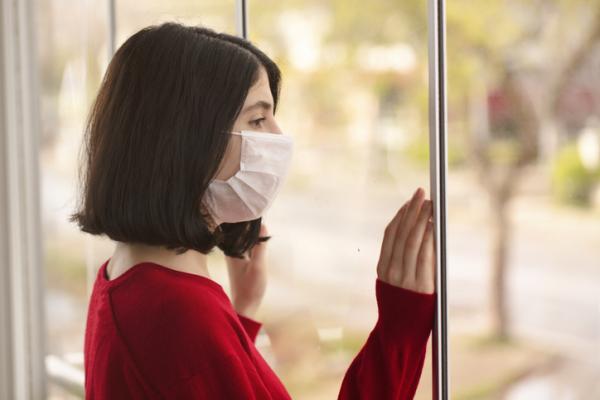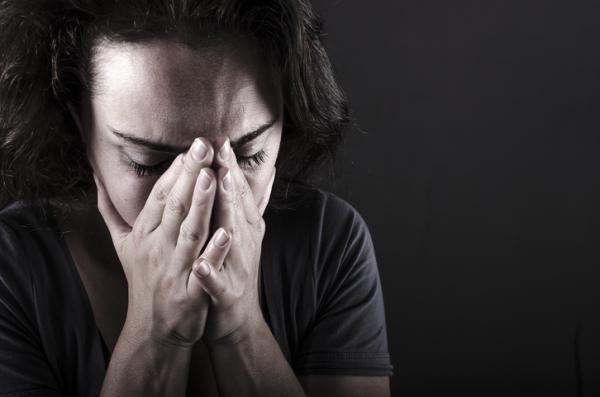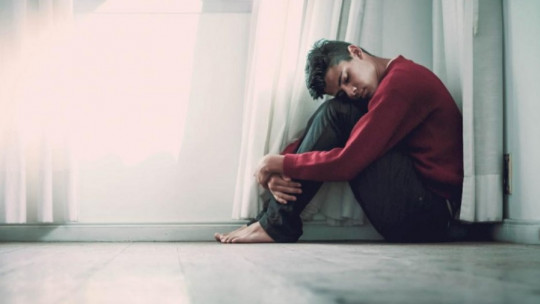
In this PsychologyFor article, we want to talk to you about fear of leaving home for being one of the most disabling problems.
The fear of leaving home isolates people who suffer from it, reduces their security and self-esteem and affects different areas of life. Do you know why it occurs? Read on to learn how to identify its symptoms, what causes it, and how this problem is treated.
Is the fear of going outside an illness?
In psychology, a problem is considered a disorder or illness when it prevents you from carrying out your daily life normally or it affects you in one or more areas of life. Therefore, if the fear of going outside is harming you at work, in social relationships or is conditioning your life in some way, we can consider it an illness.
The good news is that there are effective treatments for these types of problems that will allow you to reduce and/or eliminate the anxiety caused by leaving the house. And therefore, with the help of a therapist, you will be able to enjoy going out again.
Symptoms of fear of leaving home
The symptoms of fear of leaving home They can appear from the simple fact of thinking that you have to go out (to go to work, the supermarket or any activity) and they become more pronounced when the time comes to do so. Are:
- Palpitations, pounding heart, or rapid heart rate.
- Sweating.
- Trembling or shaking.
- Feeling of difficulty breathing or suffocation.
- Feeling of suffocation.
- Pain or pressure in the chest.
- Nausea or abdominal discomfort.
- Diarrhea.
- Feeling dizzy, unstable, lightheaded.
- Chills or feeling of heat.
- Paresthesias (numbness or tingling sensation).
- Derealization (feeling of unreality) or depersonalization (separating from oneself).

Why am I afraid to leave the house?
The fear of leaving the house is usually the cause of agoraphobia or a specific phobia, although it is also possible that it appears during depression or an anxiety disorder.
The agoraphobia It is the fear of being in places where it would be difficult to escape if we suffered a panic attack. Therefore, it usually leads to locking oneself at home because it is the place where the sufferer feels safest.
A phobia is an irrational fear of a situation, object, animal or person. If the phobia is related to something outside the home, confinement is assured.
And as for other anxiety disorders and depression, it is also common for those who suffer from them to feel safer at home, which reinforces the behavior of not going out and, therefore, seclusion to avoid any unpleasant emotion as much as possible.
How to lose the fear of leaving home
To overcome the fear of leaving home, it is best to go to a specialist and follow treatment. The most effective includes a cognitive-behavioral intervention in which we will study where fear comes from, what maintains it and how to work to eliminate it.
On the one hand, the thoughts that cause fear to appear are worked on. On the other hand, tools are provided to deal with the different associated symptoms.
Within the treatment of anxiety disorders, they are widely used due to their effectiveness:
- exposure therapy: which consists of exposing oneself to the feared stimulus until the anxiety is reduced (by verifying that the danger was not real). It can be done directly or little by little. And in imagination or live.
- Mindfulness: a currently widely used therapy based on full attention to the emotions that are felt.
Fear of leaving home after confinement due to the coronavirus
Due to the confinement situation we have experienced and the current state of the pandemic, the fear of leaving home is increasing.
In some circumstances, it is due to the fear of contagion. We feel safer at home where no strangers come near or touch us. And going out or the simple fact of thinking about going out causes anxiety triggered by catastrophic thoughts related to the situation experienced (illness, full hospitals, deaths…).
To what extent can we consider it harmful? It is understandable that after a traumatic situation we respond this way. However, there are some things we can do to prevent it from escalating for the moment, at least until everything is resolved and we return to the true normality to which we are accustomed. That will be when the fear of going out will be a problem because it is irrational. While:
- Connect with friends and family. It is important to maintain contact and not isolate yourself.
- Get some exercise.
- Don’t believe the news and consult only official sources.
- Go for walks daily in open, protected areas.
- Establish a routine and add meditation or relaxation once a day.
- Take advantage of the situation to do things you didn’t have time for before: painting, reading, cooking, etc.
- Reason all catastrophic thoughts. It is about acting with common sense and following the recommendations.
- Forget about whether others follow the rules or not. That doesn’t depend on you and you can’t control it. Being aware of others will only give you negative emotions such as anger and frustration.
- Look for the positive. During the first weeks, a lot of solidarity has been shown, communication has increased with people with whom we previously spoke little, some relationships have been strengthened…
This article is merely informative, at PsychologyFor we do not have the power to make a diagnosis or recommend a treatment. We invite you to go to a psychologist to treat your particular case.
If you want to read more articles similar to Fear of leaving home: symptoms, causes and treatment we recommend that you enter our Clinical Psychology category.
Bibliography
- American Psychiatric Association (1995). Diagnostic and Statistical Manual of Mental Disorders (DSM IV). Barcelona: MASSON
- American Psychiatric Association (2014). Diagnostic and Statistical Manual of Mental Disorders (DSM-5) (Fifth Edition). Madrid: Panamericana Medical Editorial.
- Martin, J; Moreno, P. (2011). Psychological treatment of panic disorder and agoraphobia: Manual for therapists. Bilbao: Psychology Library.








